Working with JavaScript and jQuery can sometimes be complex. Especially when creating a to-do-list, it is important that functions work smoothly and data is stored persistently. In this tutorial, we will take care of the final adjustments needed to make your to-do list fully functional. Furthermore, we will ensure that all entered data remains intact even after the page is reloaded. Let’s get started!
Key Insights
- Introduction to bug-fixing of specific functions.
- Implementation of permanent storage of to-do data in local storage.
- Ensuring a smooth user experience when creating and editing tasks.
Step-by-Step Guide
1. Adjusting the input fields for new tasks
First, we need to ensure that the input fields for the new tasks are always empty when the "New Task" page loads. This prevents old values from being displayed, which is important for clear user interaction.
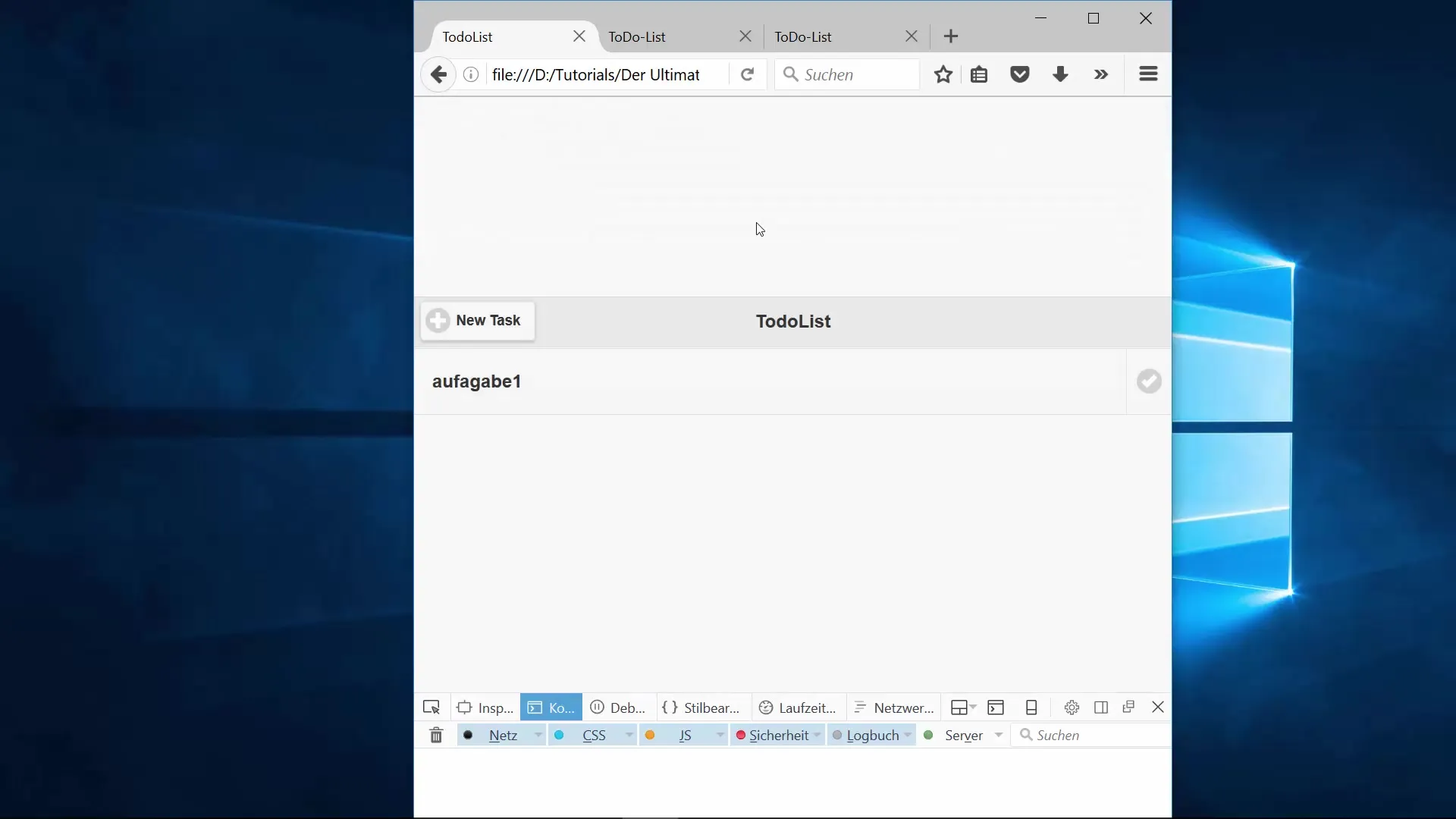
To do this, navigate to the UI of your to-do list. The function for "New Task" sets the values of the input fields for task name and description to empty when this page is called:
After implementing this change, you can test the page. When you refresh the "New Task" page, the input fields should now be empty.
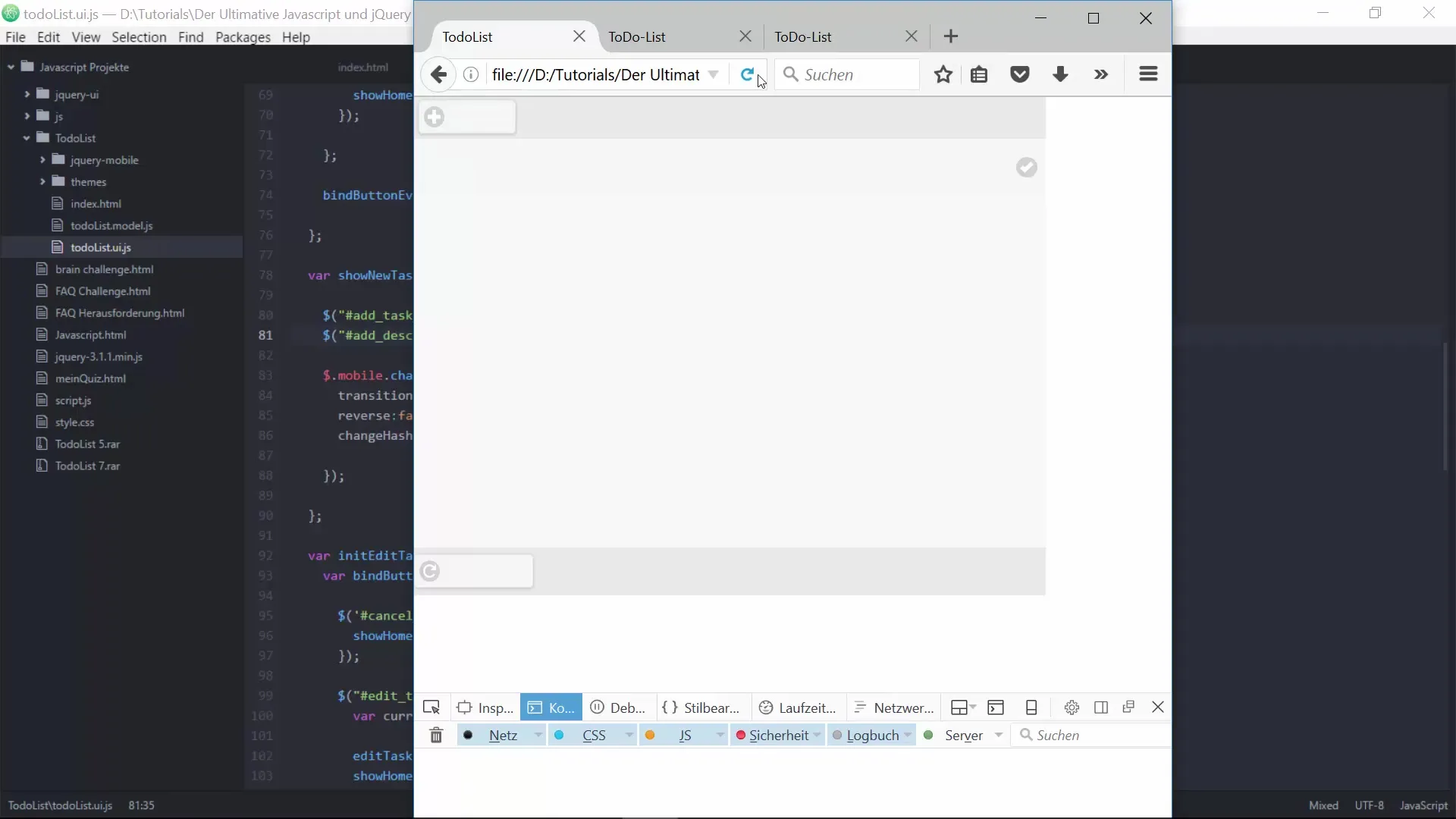
2. Editing existing tasks
In the next step, we will address editing existing tasks. When a task is being edited, it is important that the data of the relevant task is loaded and not any random data.
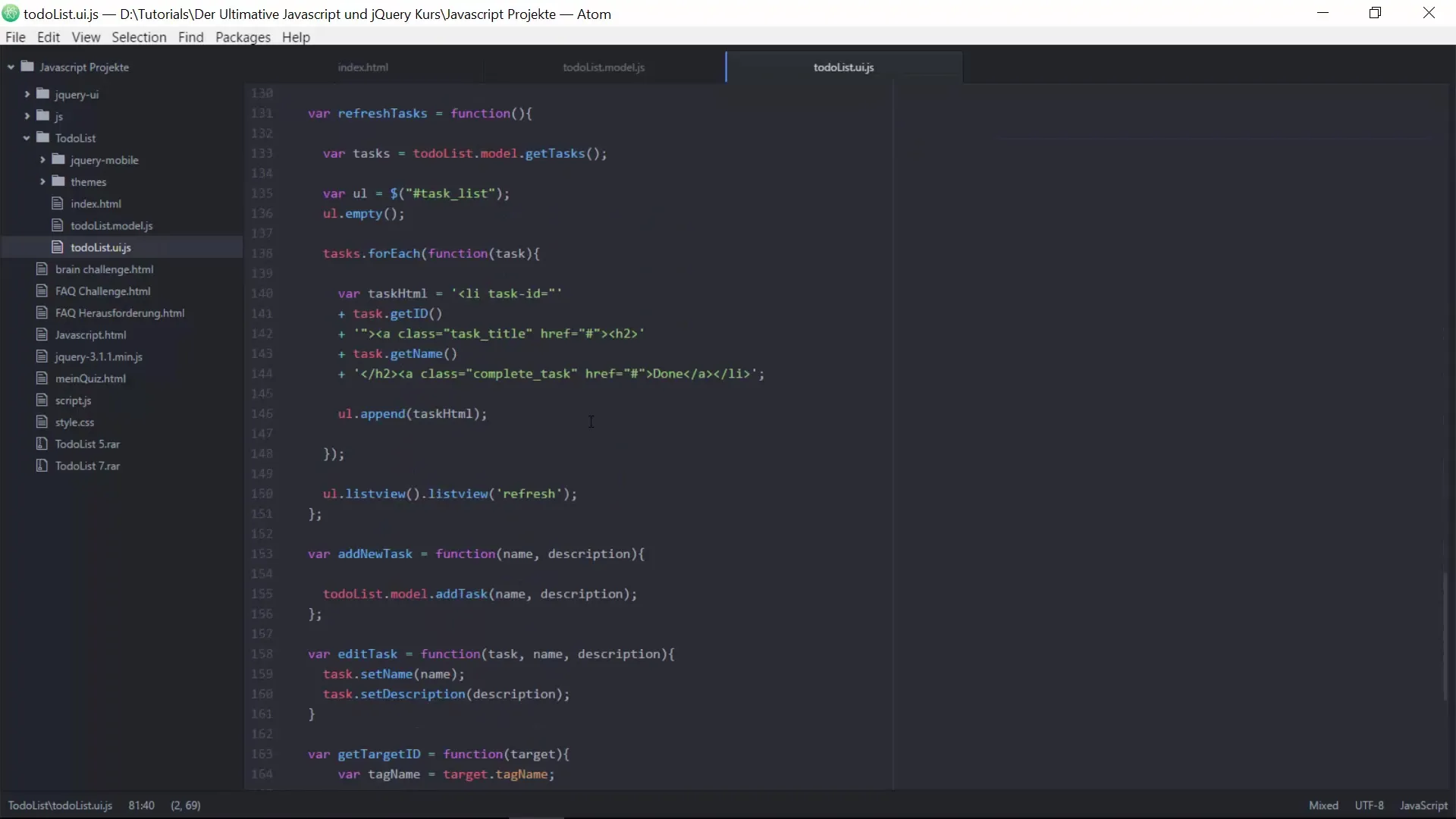
Here, you need to highlight that you need the currentTask and query it from your data model. With the getCurrentTask call in the model, you can look for the current task and set the values in the input fields:
After implementing the editing, test the function again to ensure the correct values are loaded.
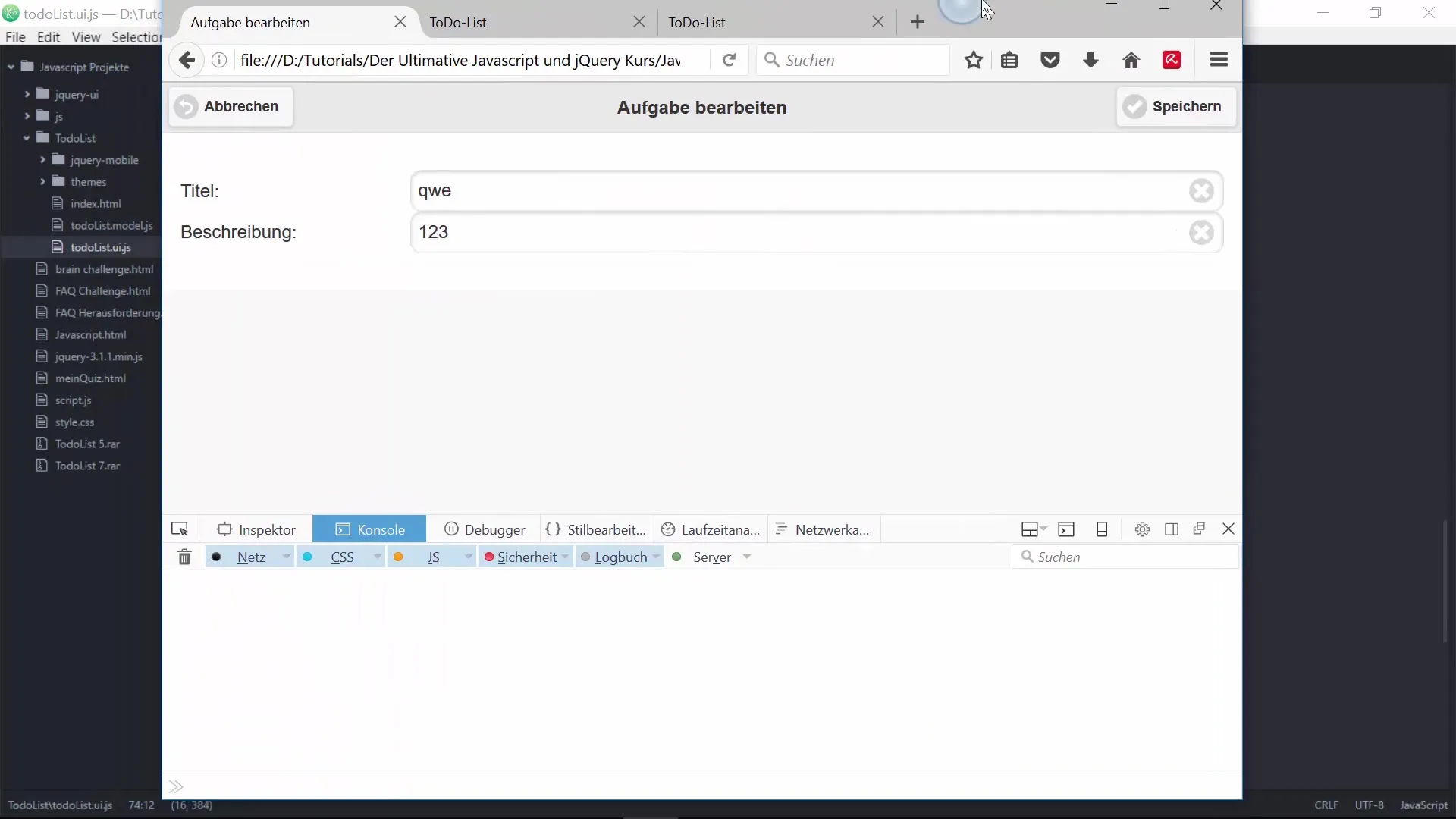
3. Permanent Storage in Local Storage
We come to one of the most important steps: permanent storage of tasks. To ensure that your data remains intact even after a page reload, we will implement the functions saveToLocalStorage and loadFromLocalStorage.
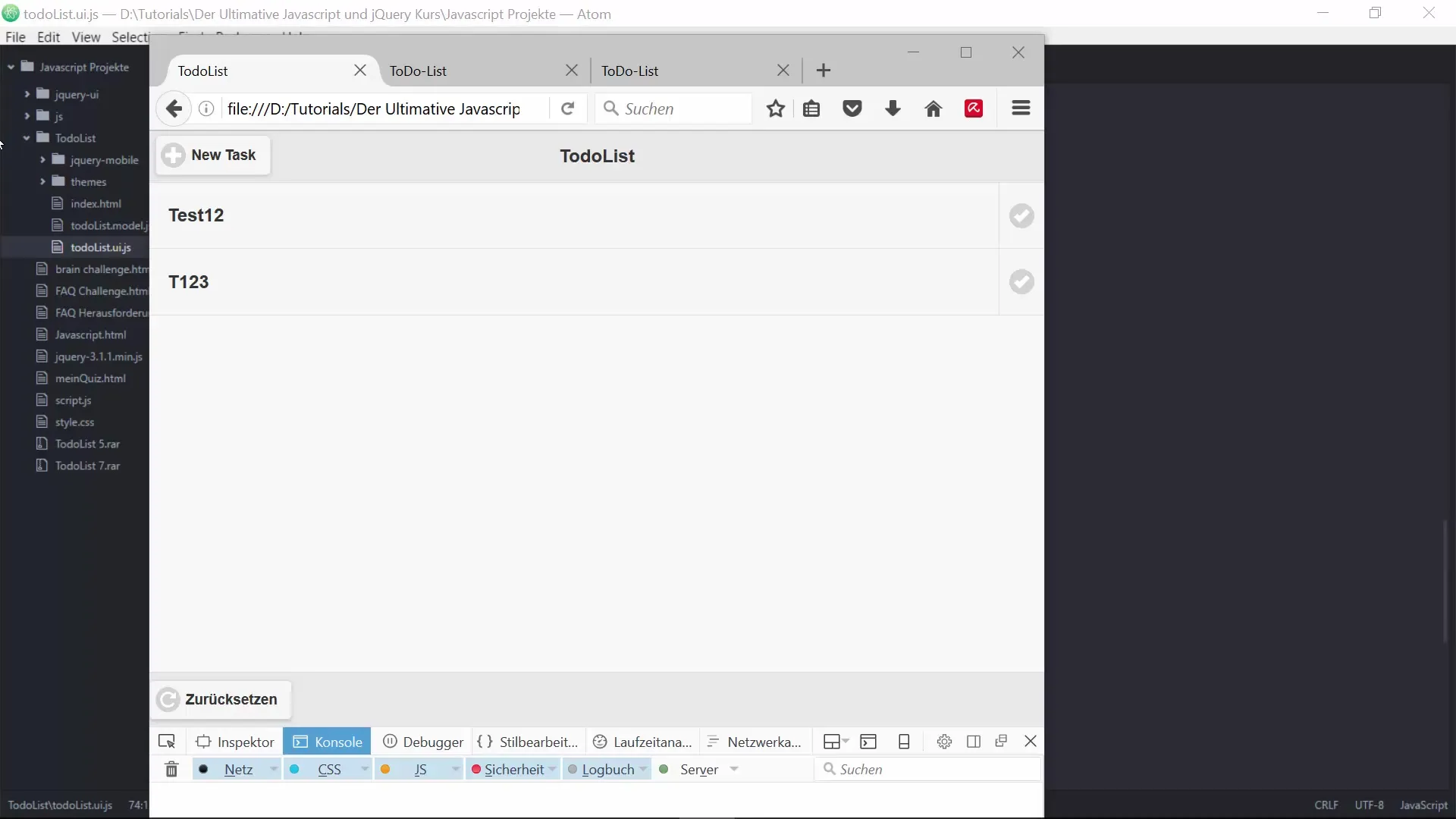
First, you need to create the saveToLocalStorage function in your data model. This function uses localStorage and stores the tasks as a JSON string, which makes it easy to load and display them. Here is an example:
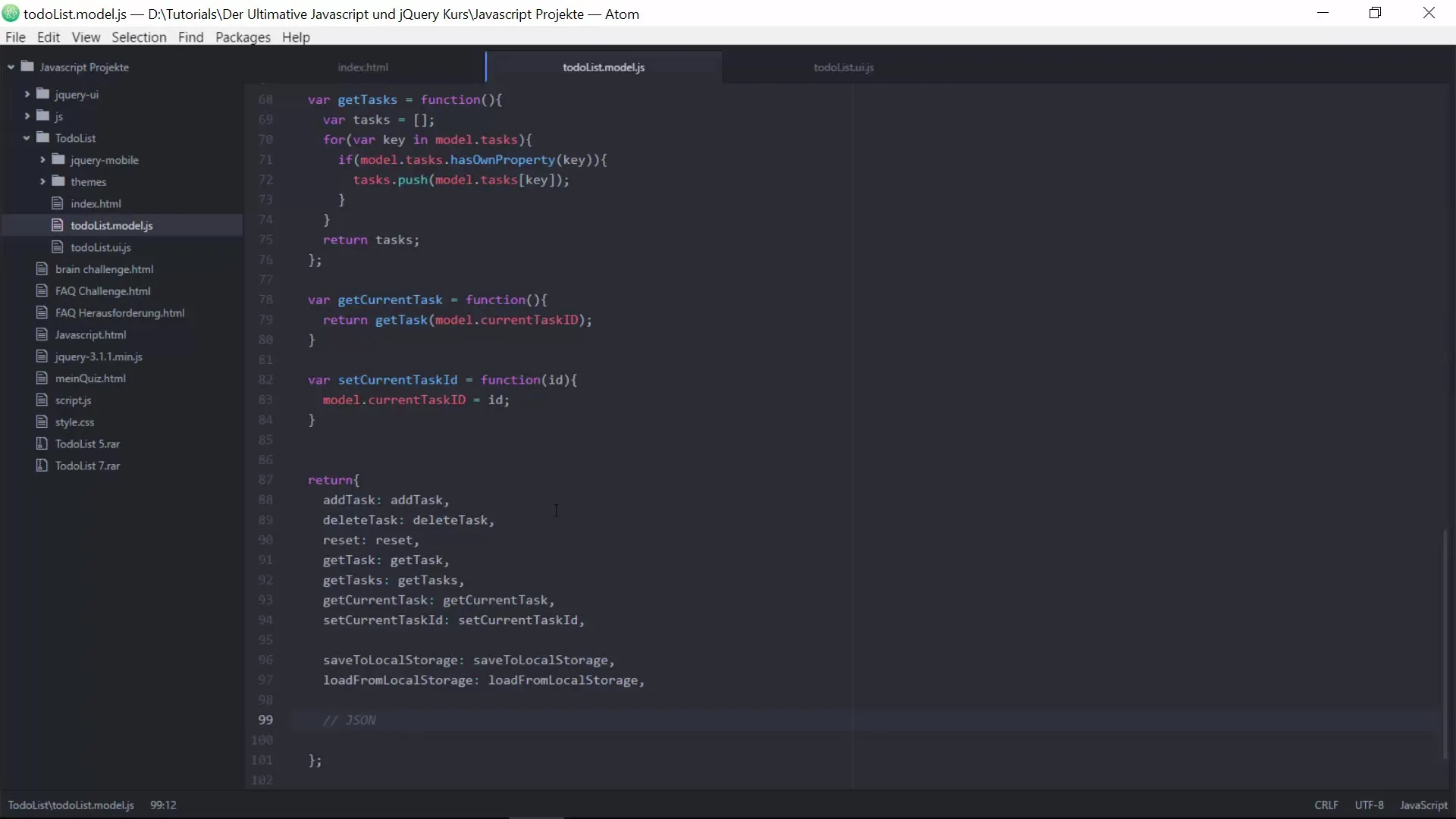
4. Loading Data
Equally important is loading the data from local storage. When the page is reloaded, you call the loadFromLocalStorage function to restore the tasks:
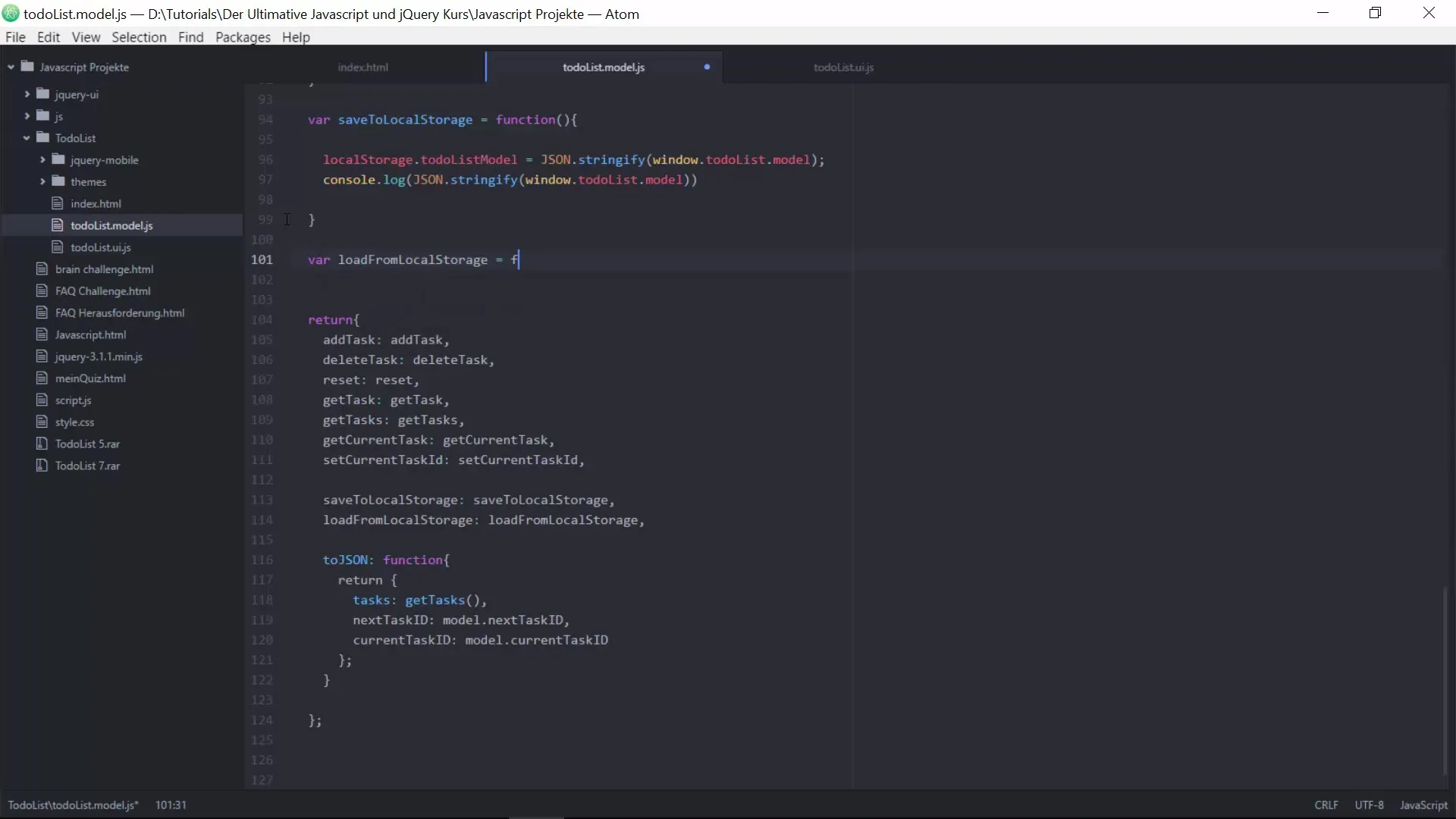
With these functions, you have a robust foundation to save and load tasks without data loss.
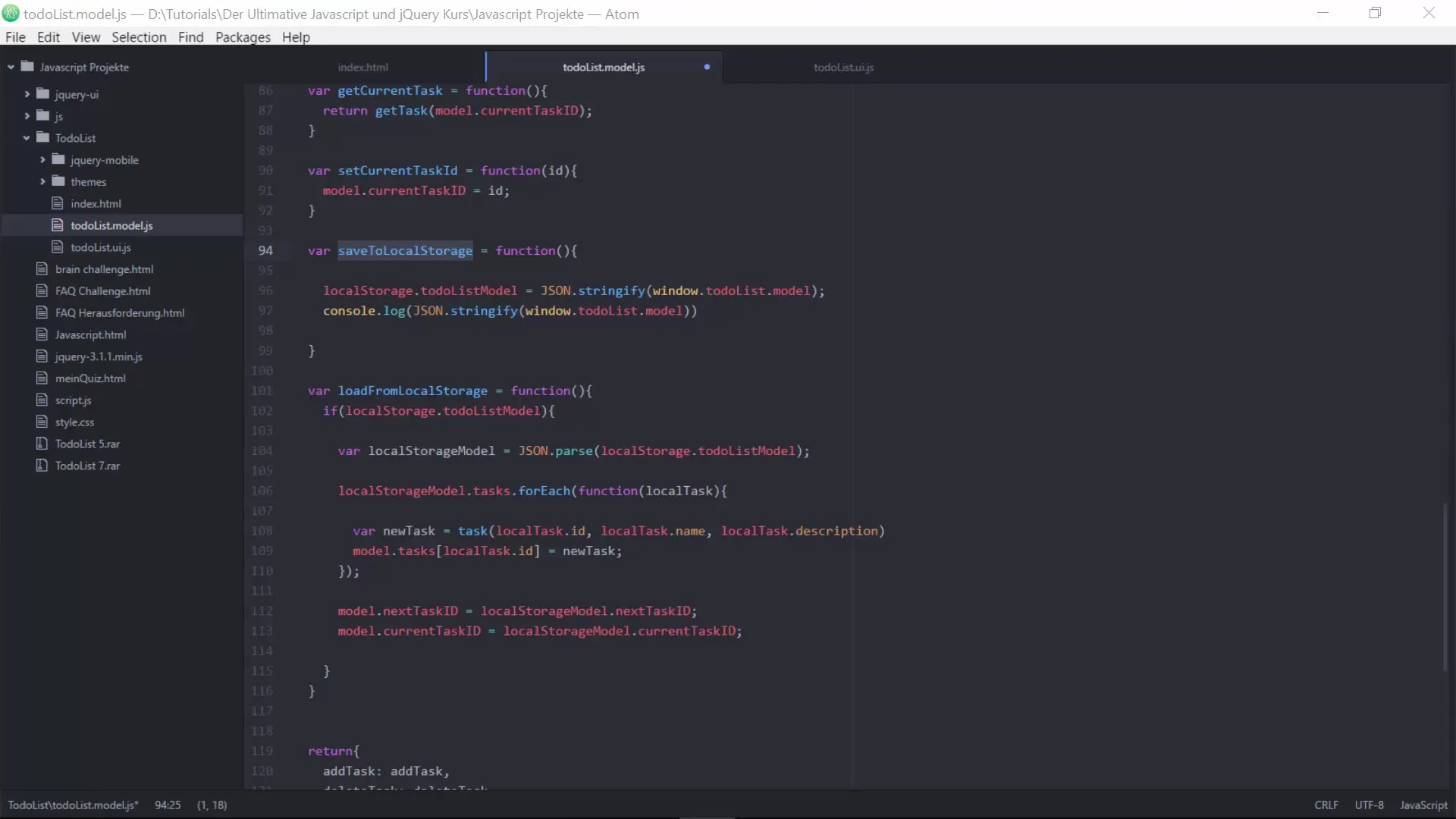
5. Testing the functionalities
Now conduct comprehensive tests. Add new tasks, edit them, and refresh the page to ensure that the data is correctly stored in local storage and loaded correctly again. Check the console to make sure everything is working.
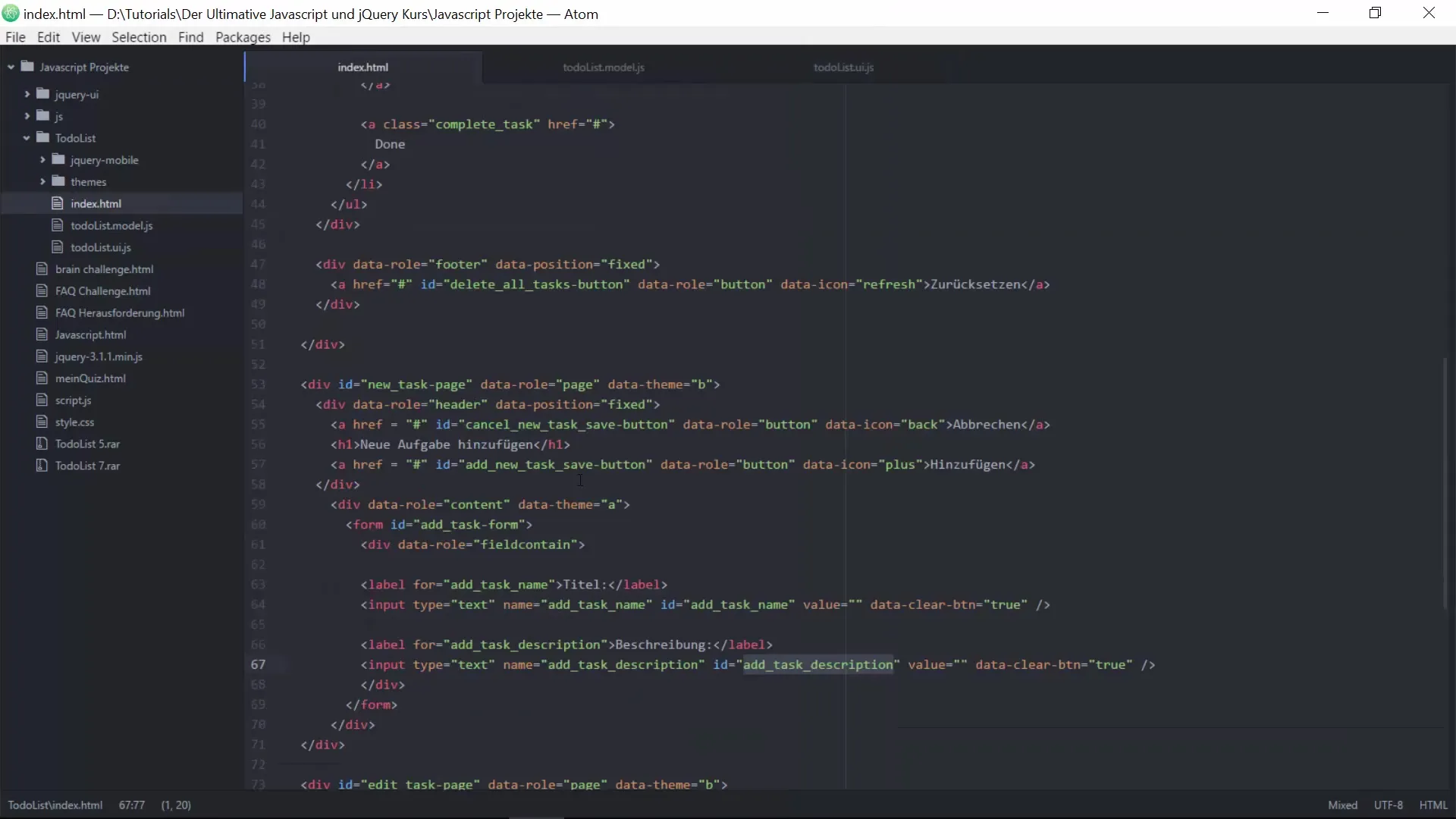
Summary - Ultimate Bug Fixing and Permanent Storage for Your To-do List with JavaScript and jQuery
You have successfully made the final adjustments to your to-do list. The input fields are now always empty, task editing works correctly, and you have implemented permanent storage. With this, you now master all the fundamental elements that an effective to-do list requires.
Frequently Asked Questions
How can I further customize my to-do list?You can add additional fields or functions such as due dates and user assignments.
What should I do if my values are not being stored in local storage?Make sure there are no errors in the code and check the console for any error messages.
How do I load data from local storage in my project?Use the JSON.parse method to restore the data when loading the page.
How do I test if my functions are working correctly?Execute the functions one by one and check the console outputs to ensure that the expected data is being saved and loaded.
What additional functions could be useful?Functions like filtering or sorting tasks could be helpful to improve the user interface.

